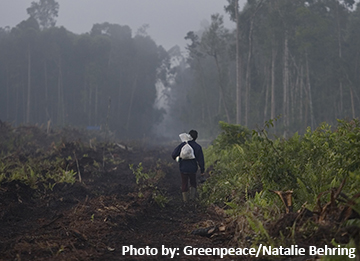
MEPs to size up ministers’ biofuels bargain
EU energy ministers have agreed a position on biofuels reform, backing a cap on the use of food crops at 7% but further weakening ILUC reporting compared to the Commission’s original proposal. They also set weak national sub-targets for advanced biofuels. But a more long-term concern is the absence of a post-2020 decarbonisation target for transport fuels.
Interested in this kind of news?
Receive them directly in your inbox. Delivered once a week.
Campaigners had pushed for full accounting of ILUC emissions and a cap closer to the 5% of transport fuel proposed by the Commission and extended to all land-based biofuels. While the Council text does not reflect those requests, the deal offers some progress as keeping the current biofuels policies would allow further penetration of harmful biofuels in the EU fuels market (8.6% by 2020 compared to today’s level of around 5%).
But the Council’s proposed reforms still fail to address the main design flaw of the legislation as it does not account for carbon emissions resulting from indirect land-use change (ILUC).
By not fully accounting for indirect emissions, biofuels that emit more CO2 than the fossil fuels they were meant to replace can still count towards meeting the 10% target.
The Council’s text contained one other significant divergence from the Parliament’s current position: on decarbonising transport fuel post-2020. Last year MEPs backed accounting of indirect emissions, but the Council text does not provide for this after 2021 – despite projections for transport to be the single biggest source of EU carbon emissions by 2030.
The Council agreement received only a tepid welcome from T&E. ‘With this modest reform, Europe puts a lid on biofuels that emit more CO2 than the fossil fuels they are meant to replace,’ said clean fuels officer, Pietro Caloprisco. ‘While it recognises that many biofuels cause indirect emissions, it fails to ensure full carbon accounting and kick-start cleaner fuels.’
Also, while ministers do want member states to face sub-targets for advanced biofuels, with 0.5% as a so-called ‘reference value’, countries could lower their targets if they explained why.
The agreement will now be up for discussion by MEPs as part of the second-reading procedure with the possibility of legislation being passed by the end of this year. However, trilogue talks between Parliament, Commission and Council have already been hampered by a joint declaration issued by eight member states. Czech Republic, Estonia, France, Spain, Hungary, Poland, Romania and Slovakia said they would not support a lowering of the cap below 7% in negotiations.
‘It is disappointing that some countries have signalled their reluctance to even discuss the 7% cap with the Parliament,’ Pietro Caloprisco added. ‘We encourage the Italian presidency not to ignore the calls from several other member states to improve the text during the upcoming negotiations.’
